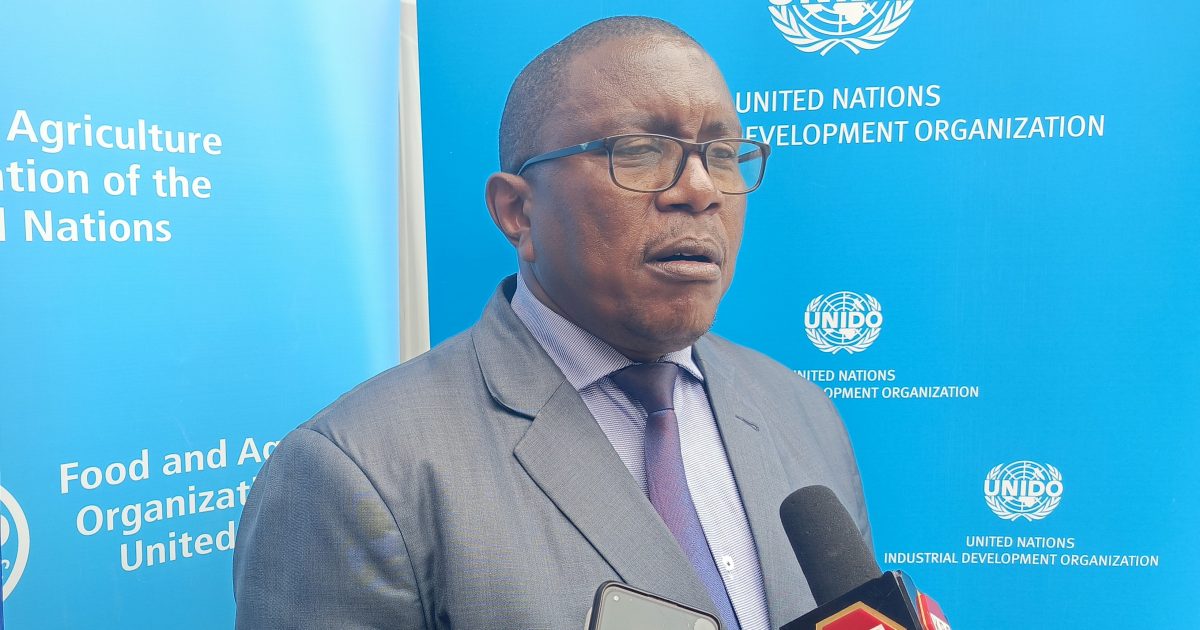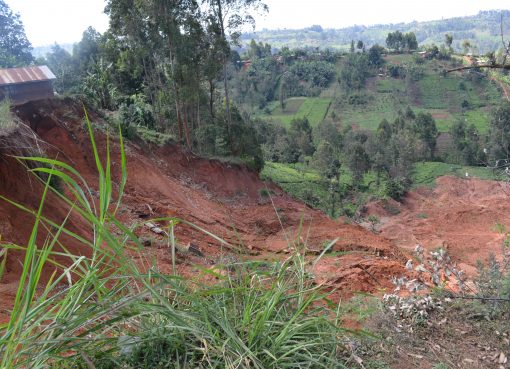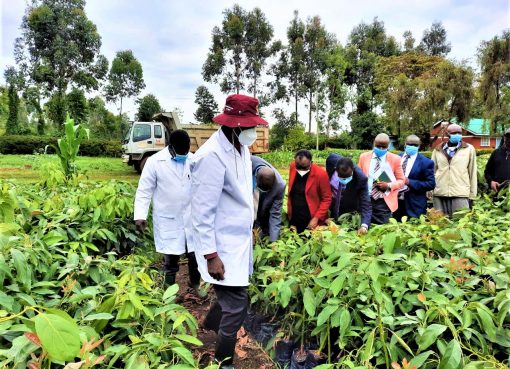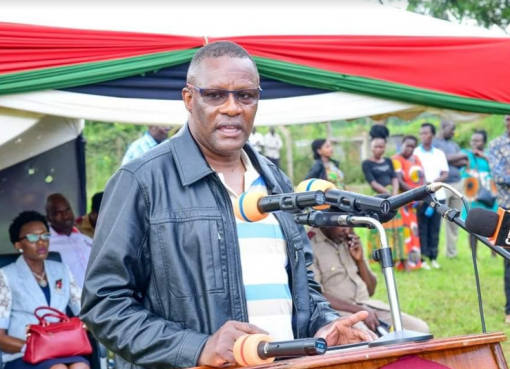Farmers in the Country will benefit from financial and technical support to address various value chains gaps, mainly the increasing post-harvest losses.
The National Government, Development partners and Counties will be able to support farmers, thanks to a one-year pilot project dubbed “Circular Economy in the County aggregation and Industrial parks (CAIPs) which has recently been launched.
Through the project, farmers will, from the technical know-how, be able to confront the challenge of post-harvest losses which currently stands at 40 percent of the national production.
Speaking during the launch of the project to be implemented in Laikipia and Nyamira counties, Agriculture Secretary in the Ministry of Agriculture and Livestock, Collins Marangu, said that through the project government can ensure that whatever comes out of the value chain is utilized and build a food system that nourishes both people and the planet.
“Circular Economy is about creating closed loop systems where agricultural products are reused, repurposed, and recycled, hence reducing waste and maximizing value”, he added.
He pointed out that climate change, urbanization, and resource depletion has put immense pressure on how we produce, process, and consume food and contemporary linear models of production where food is extracted, used, and discarded continuously become unsustainable.
“This “take-make-waste” approach leads to significant environmental degradation, economic inefficiencies, and social inequalities. Imagine a world where agricultural by-products are recycled to provide energy, where food waste is composted to fertilize soils, and where every product is used to its fullest potential. This is the essence of a Circular Economy in the food system”, Marangu said.
The Food and Agriculture organization of the United Nations (FAO) Interim representative in Kenya Nyabenyi Tipo said that the circular economy is targeting two value chains, mainly banana and livestock in the two Counties.
She explained that the pilot project has been funded by the Norwegian Government to a tune of Ksh 193.5 million (USD 1.5 million) and this is on top of what the Kenyan government has already invested in.
“This project will focus on producing food in ways that protect and regenerate nature, ensuring that our agricultural practices enhance biodiversity and restore ecosystems for future generations, it will address food loss and waste but also convert materials that would otherwise go to waste into useful products” Tipo said
She noted that the cost to transform the global agrifood system to make it more resilient, nutritious, inclusive, and net-zero is estimated at about $500 billion a year for the next 10 years.
Considering that the global agrifood systems account for one-third of total greenhouse gas (GHG) emissions that uses 70 percent of freshwater, agrifood systems, FAO representative noted must therefore be adaptable to climate change, significantly reduce greenhouse gas emissions while at the same time be able to bring more income to households.
Tipo noted that the agrifood systems should be solutions rather than problems and the transformation should begin at the grassroots level within local communities, ensuring that sustainable practices are effectively implemented and that is the model of the pilot project being launched today.
United Nations Industrial Development Organization (UNIDO) Country Representative Tally Einav said that their role will be to create bankable green projects and creating platforms, helping to connect businesses that take up the production through FAO and have created a business.
“We will develop tailored guidelines for the two value chains to assist businesses integrate circularity in their processes. We will also provide training and technical support to enhance capacities of policy makers, business organizations, to mainstream circular economy approach”, she said.
She added that UNIDO will further use its global and local investor network to interest and attract targeted investors into the joint-programme value chains of meat and banana.
“The first target is to link more than 40 enterprises with green circular business ideas to UNIDO’s platform of global and local investment”, Einav said.

Einav however said that to accelerate the impact of trailblazers in the circular economy practices there will be need for clear policy and regulatory framework to ensure the viability of investments through creation of necessary incentives and standards that can inspire growth of circular business models and innovation.
Asha Kerubo Myakwara, a banana farmer from Nyamira said they already started value addition and utilization of waste management from bananas due to high post-harvest losses of up to 46 percent.
“Through this we were able to reduce to 15 percent and we are hoping that from UNIDO we are going to have zero post-harvest losses in our County”, she said.
On waste management, Kerubo said that farmers have come to discover that waste is money.
‘Taka taka ni pesa’, When we extract the banana stems, we extract the fiber and make baskets, it gives us more money compared with the fruit”, she added urging the project to involve research centres behind who can help with more new innovations.
The Circular Economy in the County Aggregation and Industrial Parks Project under the Sustainable Investment, Consumption, and Production in the Green and Blue Economies Joint Programme will be through Multi-Partner Trust Fund (MPTF) in the next 12-months
The project is also aligned to the Kenya Government’s prioritization of food and nutrition security and ambition to establish CAIPS, promoting agro-processing and strong market linkages.
By Wangari Ndirangu





